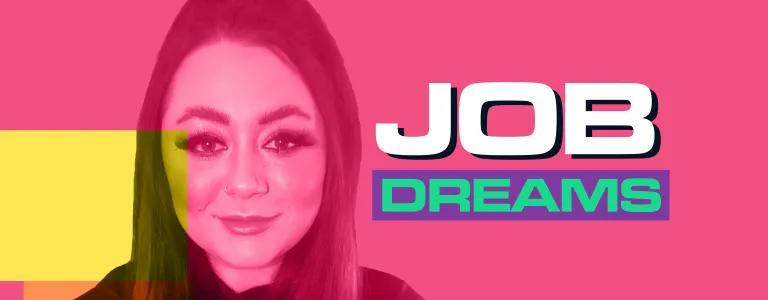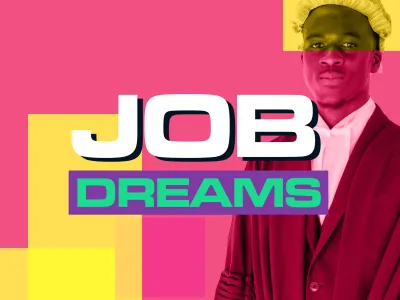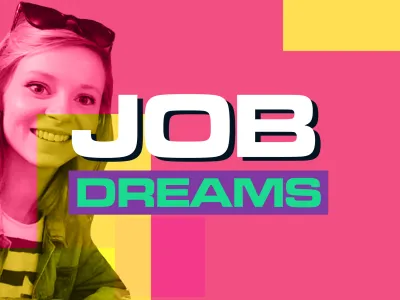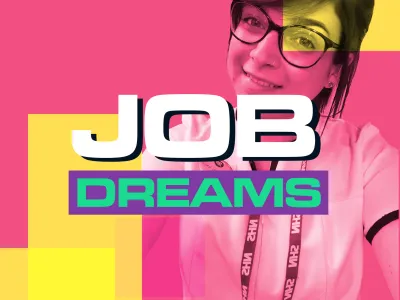
Job Dreams: Mental Health Advisor
As part of our Job Dreams series, we speak to professionals from different careers and share their advice with you. Last month, we learned what it's like to be a barrister. And this month we met Nikki, who told us what it’s like to be a mental health advisor…

What do you do?
I work for the incredible charity, The Mix, who provide a free, confidential service for under 25’s through our 1:1 volunteer led Helpline, Counselling and Community Boards. We also have a huge amount of resources and articles online. The Mix are here to support with everything and anything on a young person’s mind, whether that’s relationships, mental health and wellbeing, physical or sexual health questions, gender identity and sexuality and everything in between. I manage the helpline, so I work closely with my team of helpline coordinators and the amazing volunteers who offer this support via webchat, phone or email. I’m also a member of the Safeguarding Team.
Can you tell us what your day-to-day is like?
No two days are ever the same in my role! We are constantly striving to improve the service we deliver on the helpline through staying up to date with the latest best practice support strategies and upskilling our team. We are all responsible for particular areas of development and project work. At 2pm my team comes in to set up for the shift and we spend the first half an hour of the shift catching up (and doing those awkward icebreakers that have become so popular during lockdown). From 2.45pm our volunteers arrive and the helpline opens, so the rest of the shift we spend supporting our volunteers with the chats they are having with young people; making sure that the young person’s experiences are heard, validated and supported. I manage the team of six helpline coordinators and two service associates who support the volunteers with all aspects of their role; training, reflective practice, debriefs and general support. During lockdown alone we’ve supported well over 10,000 people on the helpline, as well as onboarding five new staff members, three groups of new volunteers, and made our whole support line virtual! We also partnered with Student Space, which is led by the leading charity for students, Student Minds, to offer tailored support to students.
What do you love most about your job?
Personally, I work with a team of incredibly passionate, knowledgeable, empathetic and empowering folx. They are always there to debrief with and chat to if things are feeling a little heavy on the helpline. Also, they send great memes and self care tips! Professionally, I am motivated by the opportunity to truly create a safe space for young people to feel heard, validated and have their experiences held and supported. It takes courage to reach out for support, and often young people that reach out have never shared their experiences before. Everyone at The Mix recognises the strength it takes to reach out. We all value being a part of the young person’s journey.
What do you find most challenging?
As someone who used to work in frontline mental health, I do miss that aspect of working face to face with the young person and getting to know them and building an ongoing rapport with them. Now I have to Urban Dictionary all the words I haven’t heard before…!

What did you see yourself doing when you were a kid?
I actually always wanted to work in mental health. When I was younger I thought I would be a psychologist, however I’m definitely happy with the route I’ve taken so far, and I can always study later on if I want to.
What challenges did you face in reaching where you are today?
While studying psychology at uni, I actually failed my statistics module *by two marks!* and had to retake this course, which did throw my confidence and the timeline I’d had in mind. But once I passed, it was all worth it, and actually I’ve learnt that there is no timeline in life. I do believe everything happens for a reason, and I ask myself ‘what has this taught me?’, rather than ‘why is this happening to me?’
If you weren’t working in this field, what do you think you’d be?
I would still be working with young people, possibly as a teacher. Or I’d be working with dolphins on some glorious beach somewhere…
Where do you see yourself going next?
As a member of the queer community, I’d love to work face to face with LGBTQIA+ youth to inform policy and process. I’d like to provide a safe space for the younger members of the LGBTQIA+ community to access support. My absolute dream job would be to open up a drop in café for young people who need support.

What do you know now that you wish you’d known when you first left school?
I think that there is so much pressure throughout school that when you finish up you should go straight into your dream career and start “ticking boxes.” To me, this hugely discounts the fact that the teenage years are formative years; when you’re still identifying and learning who you are, what you like (and don’t like) and what your passions are. It’s okay to take time to find yourself, to establish a toolbox of coping strategies that work to manage your wellbeing, to seek support where you need it, to make mistakes and for trial and error. It’s okay to prioritise happiness while you’re figuring out your next steps.
What advice would you give to someone interested in joining your industry?
Working in mental health is super rewarding, but can also be emotionally challenging, particularly as people drawn to this work are naturally empathetic and want to make a difference. My advice would be to develop self-care strategies that boost your own wellbeing and resilience. I am mindful of how my team communicates their needs and when they are having an off day, and I am open and honest about my own wellbeing with them. We all have our own “wind down” routines that work for us.
What’s the best piece of professional advice you’ve been given?
That you can’t be an expert on everything. This is why collaborative youth-led support is so important. The young person’s voice is the most important. There’s so much information out there; best practice supports suggestions and advice but the young person is the only expert of their own experience and knows how it feels for them.
What quote do you live by?
A little bit cheeky here, but it’s not a quote! My favourite poem is Max Ehrmann’s Desiderata, as I find it so grounding and reassuring, particularly the paragraph:
“You are a child of the universe, no less than the trees and the stars; you have a right to be here. And whether or not it is clear to you, no doubt the universe is unfolding as it should.”




